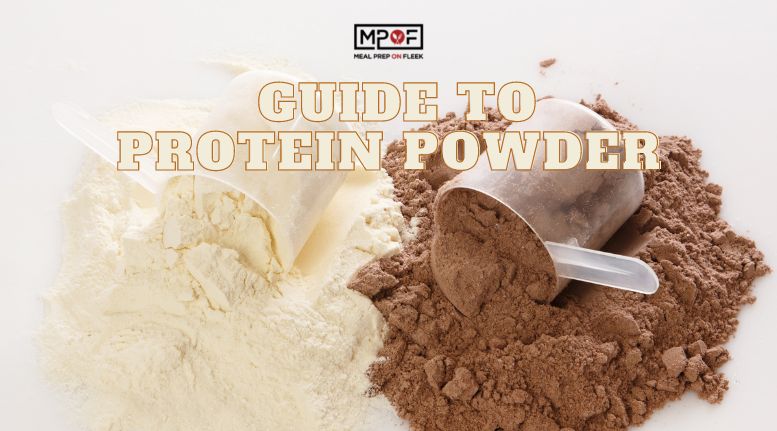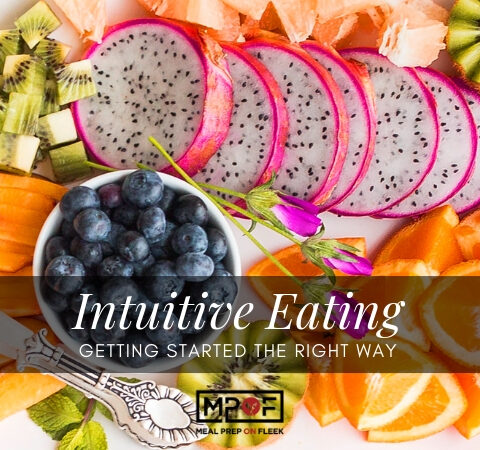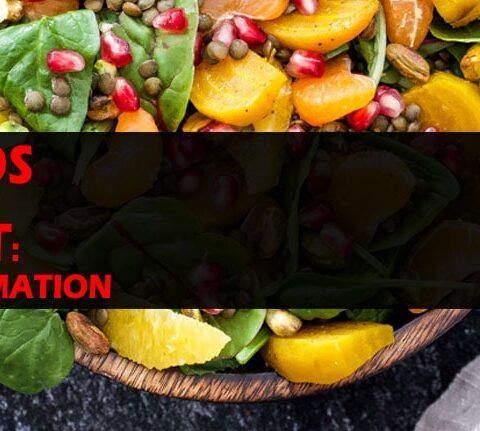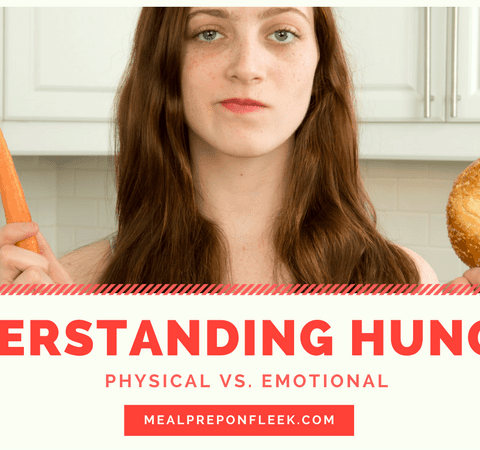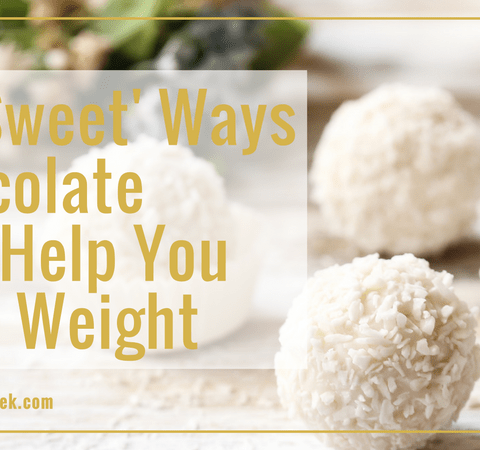These protein powder tips will explain the 411 on this popular supplement, which seems to be everywhere!
By now I’m sure you’ve heard about protein powder, maybe from your gym pal who won’t stop talking about their post-workout shake. There are also tons of recipes online that add protein powder to almost everything (guilty as charged—have you tried our protein peanut butter energy bites?). Protein powder tips and usage abounds, and it can be a big part of a healthy meal prep. (You've definitely seen all those ads on social media, right?)
Protein powder is one of the most popular supplements on the market today. But you may be wondering what exactly it is, whether or not you should use it. And if so, when and how? And of course, which one?! Do we even NEED protein powder?
Let’s dive right into it and give you the inside scoop (pun intended!) you need on protein powder.
What Is Protein Powder?
Protein powder is a supplement consisting almost entirely of the macronutrient protein. Protein is essential for a healthy diet, building muscle, and helping you stay full , which can be a game-changer if you are looking to lose weight. This powder can be derived from a number of sources such as milk, peas, brown rice, hemp, or even crickets.
By far the most popular is whey protein, which is dairy-based. However, with the rise of vegan and vegetarian diets, so too have come vegetable and grain based-protein sources.
Protein powder typically comes in a large bag or tub with a scoop that determines serving size. Generally, one scoop of protein powder contains about 20-30 grams of protein and a minimal amount of fat and carbs. Typically, protein powder comes in flavors such as vanilla, chocolate, peanut butter, and strawberry.
Who Should Use Protein Powder?
Protein powder is widely regarded as one of the safest supplements on the market, because it is almost always derived from whole foods such as milk, vegetables, or grains. This makes it simply a byproduct of everyday whole foods. However, do be cautious and read the food labels before purchasing any protein powders as some companies put much more than protein in their products. Some of the ingredients you might be happy about, such as greens or omegas-3s or probiotics, and others you might not, such as sugar.
So if protein powder is safe for almost all people, who is best for? At its most basic function, protein powder serves as a supplement to your diet when you are not able (or find it quite difficult) to eat enough protein from food alone. Many people who fall into this category, such as athletes, anyone looking to gain muscle, or anyone looking for an easy snack to help with weight loss as it can help you stay full longer.
Not sure how much protein you should be eating daily? Check out our Macro Calculator for some tips.
When to Use Protein Powder?
Because protein powder is essentially food there is no bad time to take it. The most common times people consume protein powder is after a workout, as a snack, or before bed. These are typically times when you may not eat an entire meal but would like to get some extra protein in for the day.
Why Use Protein Powder?
Protein is an essential macronutrient. Typically it is pretty easy to overeat carbohydrates and fats, especially in processed foods and sweets. However, it is much more difficult to get enough protein, much less overeat it. Adequate consumption of protein is very important for anyone looking to lose weight.
For example, a 4-ounce chicken breast contains about 36 grams of protein, 4 eggs contain about 24 grams of protein, and four cups of milk contain 32 grams of protein. But four glasses of milk sound like quite a lot of milk to drink! To contrast, one scoop of protein powder typically has between 20-30 grams of protein, about the equivalent of 4 eggs. It's might efficient!
While it is important to eat whole foods to get all the vitamins and minerals, protein powder can be a great option if you need to consume large amounts of protein daily. Again, protein powder is a supplement and should be used as such. It is not a long-term replacement for eating meals, instead, it should be used as an aide in reaching your protein goals.
Looking for some high-protein recipes? Here are 18 of them!
How to Consume Protein Powder?
The most common way to consume protein powder is mixed with water, milk, or in your favorite smoothie. Other options include adding it to foods like pancakes or oatmeal. Many companies make premade protein shakes that can be purchased at convenience stores, grocery stores, or online - making it even easier to get your protein on the go.
Wrap Up
Congrats! You are now an expert on all things protein powder. Whether you are looking to gain muscle or better control hunger, protein powder can be a great supplement in helping you get there.
Please reach out with any questions or leave a comment below. We’d love to hear from you!

